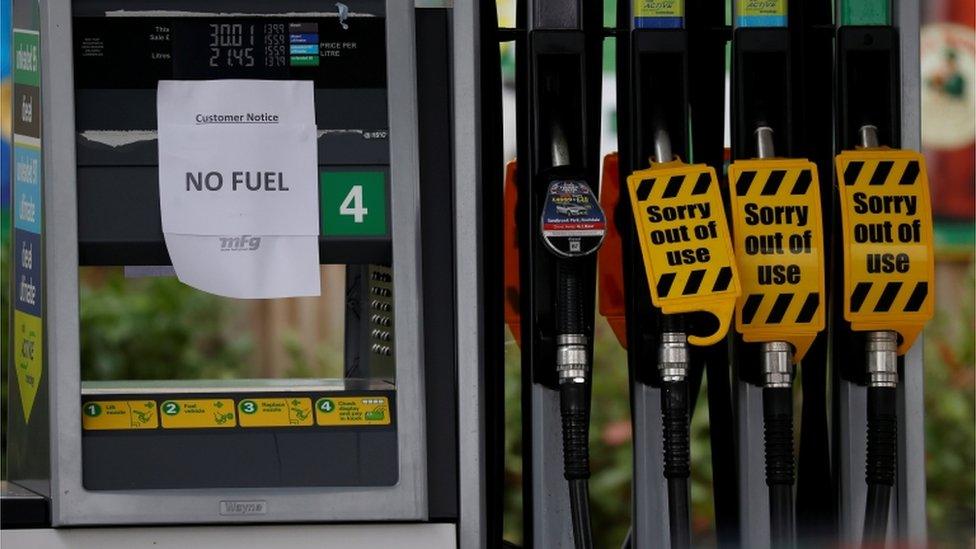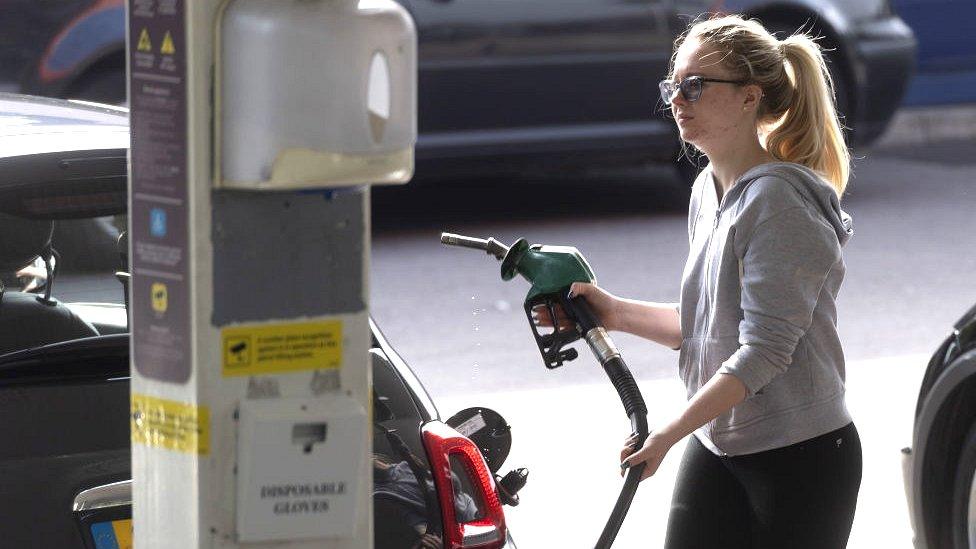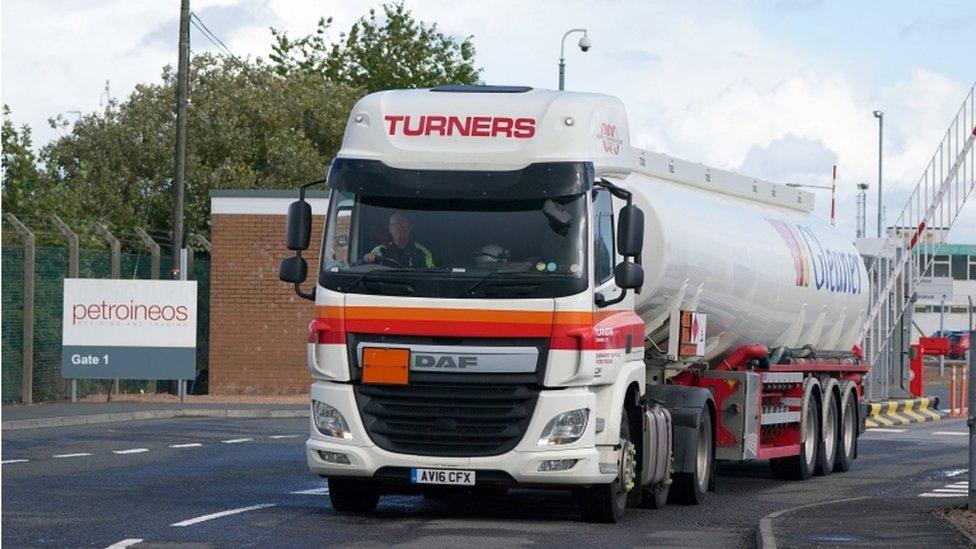Fuel shortages in Scotland: How easy is it for me to fill up my car?
- Published

Some petrol stations are completely out of fuel while others are operating as normal
Pictures of long queues and reports of fuel shortages at some petrol stations led to panic-buying across much of Scotland on Friday and Saturday.
But how bad is the problem now, and how quickly will things get back to normal?
Are there still fuel shortages?
It really depends on where you are, with some petrol stations having completely run out of fuel - while others are operating as normal.
It is not particularly unusual for garages to run low on supplies some of the time, but the problem does still seem to be worse than normal in many parts of the country - particularly in commuter areas across the central belt and eastern Scotland.
BBC Scotland reporter Sarah Toom visited 15 filling stations across Glasgow on Wednesday morning.
Of these, she said four were closed completely because they had no fuel while several others had diesel but no petrol.
One teacher said he had finally managed to find petrol after visiting five other filling stations - all of which had run out.
However, Sarah said she had seen no sign of panic-buying or queuing despite being out and about during morning rush-hour
And there seems to be a mixed picture across much of the rest of the country, with reports of some petrol stations being completely dry while others close-by are operating as normal.
What is the industry saying?

There are signs that the weekend's panic buying has ended, and people are returning to their normal fuel-buying habits
The Petrol Retailers Association, which represents 5,500 independent forecourts across the UK, said about a quarter of the garages it had surveyed in Scotland on Tuesday morning were completely out of fuel.
A further 35% were out of either petrol or diesel, while the remaining 40% had supplies of both.
On Wednesday it found the number of dry sites in Scotland had reduced to 15% while the UK figure was 27%.
The association said the issue was not as severe in Scotland as in England because supply chains were generally shorter north of the border, with petrol only having to travel from the Grangemouth refinery in the busy central belt.
Its chairman, Brian Madderson, told BBC Scotland that the number of sites without fuel had decreased quite considerably since the weekend, when many central belt filling stations were "overwhelmed" by panic buying as concern spread over perceived shortages.
Mr Madderson said there were signs that motorists were now starting to return to their normal fuel-buying habits, which he said should allow things to stabilise quickly if it continued.
Does the Scottish government have any emergency plans?

Tankers only have a short distance to travel from the Grangemouth refiners to petrol stations in the central belt
Deputy First Minister John Swinney told the BBC's Good Morning Scotland programme on Wednesday that fuel shortages were more acute than usual in some areas of the country.
But he insisted that the situation was improving, and stressed that many forecourts have a "perfectly adequate, normal supply".
Mr Swinney was speaking ahead of a meeting of the Scottish government's resilience committee, which was bringing together councils and emergency services to discuss the situation.
He said the government would take steps to prioritise emergency vehicles such as ambulances and police cars if it was necessary.
And he said the UK government's decision to start using 150 military drivers to deliver fuel within the next few days "may well be helpful".
Mr Swinney also said if people were to just buy petrol or diesel as they normally would, then "there is plenty fuel and there is plenty of fuel distribution."
What is causing the problems?
Fuel supplies are plentiful at refineries but a shortage of tanker drivers caused problems with deliveries to a relatively small number of filling stations last week.
Reports of pumps running dry at some garages then subsequently led to a surge in demand as motorists flocked to filling stations to top up their tanks.
The UK is estimated to be short of about 100,000 lorry drivers - causing problems for a range of industries, including food suppliers and supermarkets, in recent months.
Fuel tanker drivers need additional safety qualifications on top of their HGV licence to be able to transport chemicals such as petrol.